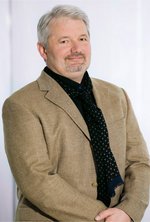
Dear Reader,
2014 was an eventful and successful year for research at the University of Duisburg-Essen (UDE).
The news is also good with regard to external funding, which showed renewed growth to 110 million euros at the end of 2013. We owe this excellent result to our researchers, who by securing research projects build the foundation on which our success is based. According to current estimates, this result will again be achieved or even surpassed in 2014.
Here is just a small selection of particularly outstanding research activities and distinctions of the past year. A promising start was made by the Collaborative Research Centre (SFB) 1093 of the German Research Foundation (DFG) titled “Supramolecular Chemistry on Proteins”, which the DFG is initially funding with some seven million euros. The SFB has made it its goal to employ modern insights and methods from supramolecular chemistry to achieve specific interaction between proteins and artificial ligands. It brings together the Faculties of Chemistry, Biology and Medicine at the UDE. Other participating institutions are the TU Eindhoven and the Max Planck Institute of Molecular Physiology in Dortmund.
The UDE is also taking part in the “NRW Fortschrittskolleg ‘Future Water’”, which was established in 2014. The program develops strategies for a sustainable urban water cycle based on the example of the Ruhr region. The entirely interdisciplinary approach taken to the theme combines chemical, biological, medical, social and engineering perspectives. The consortium includes the Universities of Duisburg-Essen and Bochum, the Hochschule Ruhr West University of Applied Sciences, the EBZ Business School and the Institute for Advanced Study in the Humanities (KWI Essen). The “Fortschrittskolleg” is also part of a network of business, research and association partners.
At the end of October, the Federal Ministry of Education and Research (BMBF) approved the young scientist group on man-machine interaction of Dr. Aysegül Dogangün. Her proposal originated as part of the BMBF’s “Interdisciplinary Excellence” competition on the theme of “Human-Machine Interaction and Social Change”.
The Research Unit “Academic Learning and Success in the Initial Phase of STEM Degree Courses” of the German Research Foundation (DFG) also received a positive evaluation by reviewers in 2014. Its coordinator is Prof. Elke Sumfleth, Faculty of Chemistry, together with Prof. Detlev Leutner, Faculty of Educational Sciences.
Germany’s most important research award, the Gottfried Wilhelm Leibniz Prize, went to Prof. Christof Schulz in 2014. He shares this prestigious accolade with his colleague Prof. Andreas Dreizler from the Technical University Darmstadt. Both are among the world’s leading experimental combustion research scientists.
Prof. Till Neumann of University Hospital Essen received the State of NRW Inventor Award in 2014. The distinction was awarded in the “life sciences” category for his patented invention for gentle treatment of mitral valve insufficiency.
Special thanks go once again to our Research Commission, which devoted its attention to topics such as quality assurance and supporting young scientists.
Our work in the region – research collaboration with the Universities of Bochum and Dortmund – is intensifying. In 2014, the University Alliance Ruhr (UA Ruhr) established a Research Council which deals with the UA Ruhr profiles and identifies research priorities. It was the proposal of the UA Ruhr Research Council that prompted the Alliance’s Coordination Council to set up the “Material Chains” research cluster. More than 100 research groups at the three universities are now working at the highest international level in this field.
In international research it remains for the UDE to position itself in the course of the HORIZON 2020 EU framework programme launched last year and push forward attractive proposals.
I would like to thank all our colleagues, who through their commitment to science help to make the research at our University so excellent and fascinating. I hope you enjoy learning more about the research of our eleven faculties.
Happy reading – and “Glück Auf!”,

